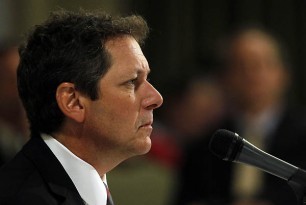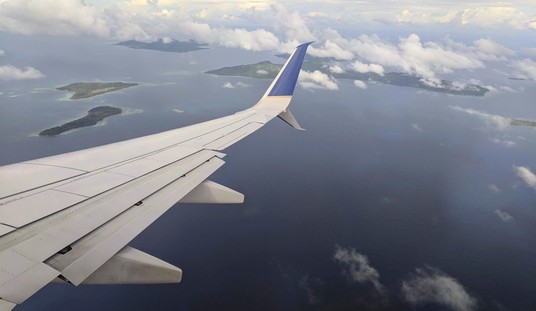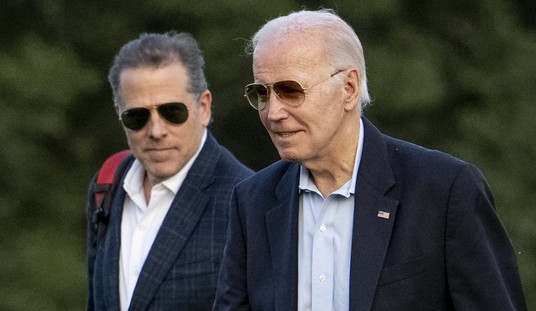As many of you know, your humble correspondent is a veteran of 32 years of service in the oil and gas industry, currently serving as the operations manager for a small Gulf of Mexico exploration and production company. This week, the President’s Oil Spill Commission published its 380-page report on the BP blowout and spill on the Deepwater Horizon. I won’t pretend to have read the thing, but there are a few recommendations and outcomes worth commenting upon.
Panel: More reform needed to prevent future spills
When asked about the likelihood Congress would enact some of its suggestions, especially with a Republican majority in Congress looking to curb government regulation and spending, panel co-chair and former Florida Democratic Senator Bob Graham said that the magnitude of the disaster “would override an ideological preference for less government, less government intrusion, less government cost.” …
The panel said Congress should draft legislation to create within the Interior Department an independent safety agency and a separate environmental office to evaluate the risks of oil drilling to natural resources. Such a change would not require any additional funding.
Two new bureaucracies, eh? Color me unsurprised.
Reading these government reports, one gets the impression that the oil and gas business would conduct itself like the Seventh Fleet on shore leave, were it not for the stalwart defenders of safety and the environment embodied in the Department of the Interior’s inspectors.
In the wake of the BP Spill, we’ve seen a raft of new regulatory initiatives from the BOEMRE, the Interior agency which has oversight responsibilities for offshore oil and gas operations. Many of the new regs have nothing to do with addressing the problems of BP or Transocean at Macondo. Some of the new requirements for drilling wells arguably don’t add a margin of safety and may even increase the risk of a well’s failure. Industry’s attempts to convince the regulators of this, however, have fallen upon deaf ears. There’s a new sheriff in town, and he aims to let everyone know who’s boss.
In fact, the oil and gas extraction industry has an excellent (and improving) safety and environmental record, a record that is better than most heavy industries. That’s especially remarkable in an industry that operates 24/7/365 in the hostile, corrosive marine environment. Industry practices do not reflect fear of the government regulator (BOEMRE), but rather the fact that safe and pollution-free operations are proven to be more efficient and cost-effective. There has never been a profitable spill or an accident that made money.
Take BP’s Macondo, for instance. That was a 50 million barrel discovery, according to the word on the street. At $80 per barrel, that’s a gross value of $4 billion dollars. Add the value of the 100 billion cubic feet or so of natural gas: another $400 million. Out of that $4.4 billion, the government’s take is 18.75% of the gross, or $875 million in royalties alone. (That’s on top of the $35 million they got when the lease was granted.)
That leaves over $3.5 billion in future product value, if you just don’t screw it up. Lots of BP decisions have been criticized as having been about saving money over safety. A $10 million saving (say, on a well design decision) pales compared to the $3.5 billion asset you put at risk to save it. Even worse, the cost of the cleanup and damages will be on the order of $35 billion, so the savings were something like $300 per $1 million at risk.
So who does the Commission blame? BP, Halliburton and Transocean, not surprisingly, and as operator BP made most of the key decisions. Who within BP, you might ask, made those key decisions?

BP Engineer John Guide Singled Out in Presidential Spill Report
The report’s singling out of Guide comes five days after Co-Chairman William Reilly said BP was the “centrally responsible company in the Macondo blowout.”
Guide, a University of Pittsburgh-trained engineer, led the $154.6 million Macondo project from an office complex in Houston at the time of the April 20 blowout that left 17 workers injured and destroyed the $365 million vessel. …
Four days before the explosion, Guide overruled recommendations by BP and Halliburton Co. technicians to more than triple the number of centralizers used to keep the well’s metal casing pipe centered while cement was poured around the sides, the panel said, citing internal BP memos.
Halliburton, the Houston-based provider of cement for the well, warned BP that failure to use more centralizers left the well susceptible to a gas influx. BP engineer Gregory Walz urged Guide to heed Halliburton’s advice and told his boss that 15 additional centralizers could be shipped to the rig, the panel said.
Guide rejected the plan to use the extra centralizers, saying they were the wrong design, the panel said.
It would suck to be John Guide.
In testimony before the joint Coast Guard-Interior Department board in August, BP vice presidents Patrick O’Bryan and David Sims singled out Guide as holding ultimate authority for decisions regarding the structure and drilling of the Macondo well.
In the blogging I’ve done about the BP spill, I’ve held off being overly critical of BP’s operations and decisions, partly because 1) my only source of information is the press, and 2) “There but for the grace of God go I.” Sometimes circumstances in this risky business force decisions to be made where there is no clear-cut choice. I’ve lost more than a couple of sleepless nights wondering if that 11 p.m. decision would turn out to be the right course of action. The troubling thing with BP is that some of Mr. Guide’s decisions appear to have overridden technical recommendations made by his vendors and by his subordinates.
The challenge is writing a comprehensive operations manual for a business that stays on the forefront of technology. You can’t possibly anticipate every circumstance that might happen at 3:30 in the morning on an 18,000 foot well located in 5,000 feet of water.
But as daunting as that management challenge is to the oil company, it is folly to expect a government agency to impose a regulatory structure that totally removes the risk from the process of oil drilling. A bureaucracy can never be as nimble, creative and motivated as the private sector. Government can never anticipate the technological innovation or the new frontiers that industry needs to explore. And a bureaucrat will never be accountable for the results, as Mr. Guide is.
Industry has a good track record of learning from its mistakes. The best example of that is the “subsurface safety valve”, the little device required in every offshore producing well that prevents a blowout in the event of a catastrophic failure, like a platform collapse. With hundreds of platforms down in Hurricanes Ivan, Katrina, Rita, Gustav and Ike, thousands of SSV did their jobs with zero significant failures and near zero pollution.
Bottom line: 5% of the new rules and regulations that come out of BOEMRE’s initiatives, along with the Commission’s recommendations, will make deepwater offshore drilling and production safer. (I maintain that shallow water operations never demonstrated any safety and environmental problems to begin with.)The same type of recommendations were identified by the National Academy of Engineering panel back in May, common-sense changes that would have been embraced by industry anyway. The other 95% will stifle and suffocate industry without adding any meaningful margin of safety. Some of them will make processes less safe.
In closing, Thomas J. Pyle of the Institute for Energy Research has some interesting observations in his post at the National Journal:
The Truth Will Set the Gulf Economy Free
In drilling the Macondo well, BP failed to meet industry standards regarding well design, and their management improperly interpreted multiple tests that revealed serious problems. While this evidence points to a serious problem with one company, the politically motivated panel has, not surprisingly, attempted to use this report to tackle broader issues – namely the future of offshore development in the U.S.
The President’s Commission has, unfortunately, become an activist vessel to shoot holes in any plan for expanded production. How else could you explain the findings in the commission’s report, which seems to indict BP for its mismanagement while convicting the entire industry in the process?
The commission – charged with understanding the technical intricacies of a failed offshore well – does not contain a single member with experience in the oil and gas industry. It instead consists of former and current green activists, lawyers, and professors. …
Unfortunately, the facts have been largely ignored or overlooked in the Administration’s response, inflicting a significant toll on the regional economy. The federal moratorium and the permitting freeze which continues to devastate the Gulf were issued under the assumption that the entire industry must be at fault. As a result, 20,000 jobs were eliminated through September, and more are disappearing daily. Following the April spill, Louisiana unemployment has risen from 6.2% to 8.2% in the most recent data available. The disastrous economic effects are clear, but the causes for these policies are not.
There has been no evidence to suggest that the BP well blowout reflects an industry wide problem. In fact, the evidence points to the exact opposite. By suggesting that the problem is somehow industry-wide, the Commission makes a grievous and inexcusable error.
Cross-posted at VladEnBlog.















Join the conversation as a VIP Member